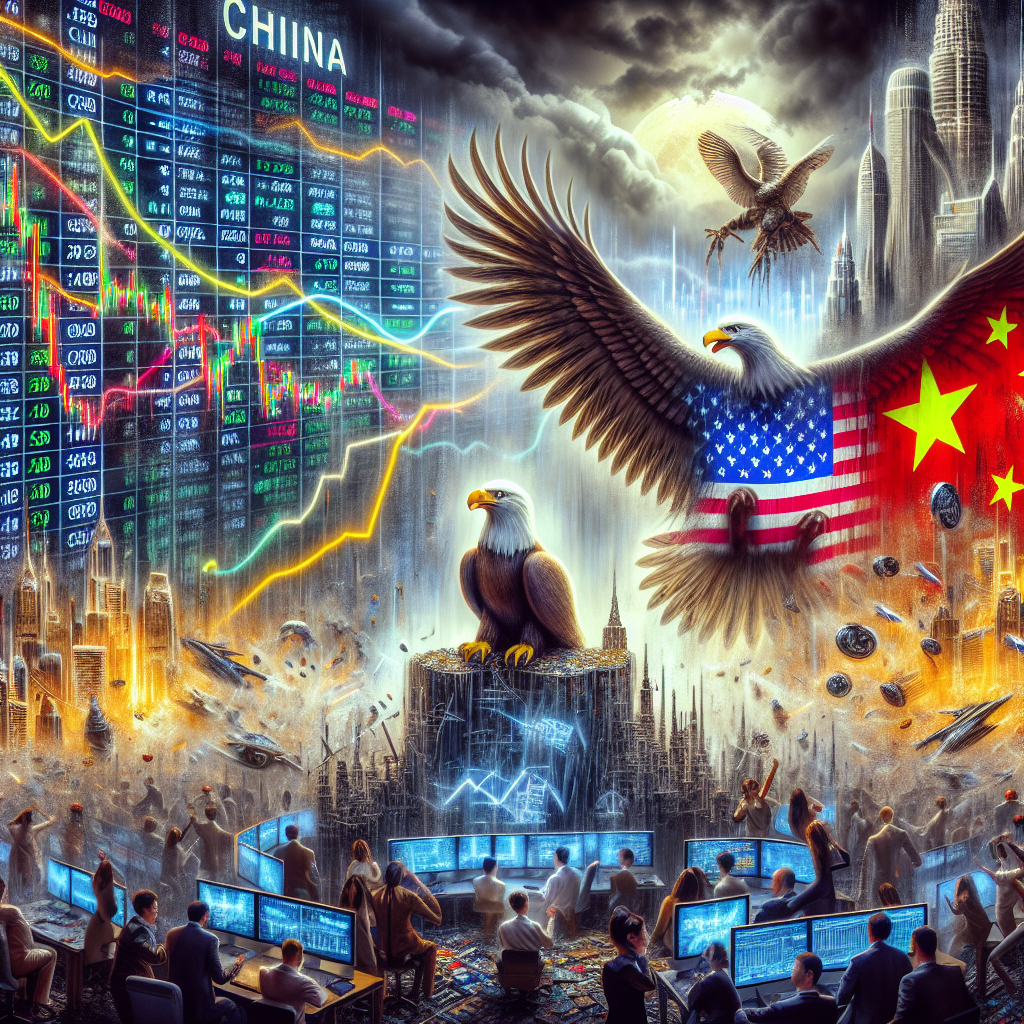Hello, everyone, welcome to “Extraordinary Financial Path”.
Today’s focus: The United States takes a tough stance, targeting 140 chip companies in China! Finally, financial channels are blocked, and Russia’s economy is in dire straits! A craze for cryptocurrency investments sweeping through the US stock market after Trump’s re-election! Optimism soars as Thanksgiving spending in the US breaks records again!
In the last week of November, inflation data in the United States did not slow down but accelerated, possibly due to Trump’s threat to impose high tariffs. Nevertheless, the S&P 500 index still easily outperformed major stock indices in Europe and Asia, rising by 1.1% last week. Major investment institutions worldwide, including UBS and Fidelity International, believe that the US capital market will continue to dominate globally in 2025.
Compared to other regions globally, 2024 should be considered the best year for the US stock market. Despite high interest rates, US corporate borrowing remains active, and the meteoric rise of cryptocurrencies has also led to substantial gains for many investors.
Since Trump’s election, the performance of the US market has been exceptional. Investors initially responded positively to Trump’s cabinet selections. Even though his tariff threats caused market volatility and inflation indicators increased, trading volume remained high.
In contrast, the performance of French government bonds has been very poor, likely influenced by the political turmoil within France this year, with frequent strikes by labor unions.
According to data from investment institution Barclays, despite the widening gap in valuations between US assets and those in other regions, funds flowing into US stocks have been accelerating over the past month, while Europe and other emerging markets are witnessing significant capital outflows.
Caroline Shaw, portfolio manager at Fidelity International, stated: “From a broader perspective, we tend to favor investing in the US, as US profit growth is expected to remain strong.”
Since the pandemic, the US economic growth has consistently outpaced other developed countries. This optimistic trend is expected to continue, with Trump’s reelection further boosting confidence.
However, there are still many who hold a negative view on this. Adam Slater from the Oxford Economics Institute believes that if the US significantly increases tariffs and faces massive retaliation, the market optimism may be premature.
As mentioned earlier, the recent performance of cryptocurrencies has been extremely volatile, with speculation attributing this to Trump’s re-election promise to relax regulations on the cryptocurrency industry.
According to the latest data from professional institutions, a record $6.5 billion flowed into the US stock market for Bitcoin transactions in November, with another popular cryptocurrency, Ethereum, also experiencing a surge in trading volume and interest.
Bitcoin approached the $100,000 mark in late November, trading around $97,880 on Monday morning, while Ethereum reached around $3,730.
While Trump was initially skeptical of cryptocurrencies, he gradually recognized the positive aspects of decentralized cryptocurrencies and the promotion of financial technology development, which led to a shift in his attitude towards cryptocurrencies.
Recent reports have also mentioned that Trump’s core team plans to establish a senior position in the White House specifically dedicated to cryptocurrency policies. If confirmed, this would be the first-ever position in the White House solely focusing on cryptocurrencies.
Statistics from CoinGecko show that since Trump’s election as US president, the overall market value of the cryptocurrency market has increased by about $1.2 trillion. In 2022, digital assets such as Bitcoin faced challenges, compounded by the collapse of Sam Bankman’s FTX trading empire and various major negative events, as well as numerous fraudulent activities involving digital currencies, raising doubts about digital currencies. However, the recent surge in cryptocurrency investments seems to have made people forget these risks, indicating a “forgive and forget” mentality.
Over the Thanksgiving weekend, movie theaters in the US were once again packed with attendees. Reports indicate that over 400 million viewers flocked to movie theaters, setting new box office records and bringing joy to Hollywood studios.
According to data from Comscore, total box office revenue in the US during the five-day Thanksgiving holiday reached $420 million, setting a new record.
Among the films, the Disney animated film “Moana 2” sequel was the most popular, attracting 17.4 million viewers; Universal Pictures’ “Bad Witcher” followed closely with 8.7 million viewers, and Paramount’s “Gladiator 2” attracted 3.3 million viewers. Additionally, films such as “Red One,” “Conclave,” and “Juror #2” also surpassed box office expectations.
Comscore stated in its report that this Thanksgiving weekend was extraordinary for movie theaters.
With the revival of movie-going enthusiasm, AMC’s stock rose by approximately 10% last week.
According to an exclusive report by Reuters, two US government sources revealed that the Biden administration would launch its third strike against the Chinese semiconductor industry in three years this Monday, strictly restricting exports to 140 Chinese companies, including chip equipment manufacturers Naura Technology Group, Piotech, SiCarrier Technology, among others, and implementing other restriction measures.
The move is aimed at stopping China from acquiring and producing chips that could help advance artificial intelligence for military use or pose other threats to US national security. This aggressive measure is expected to be maintained into the Trump administration in a few weeks.
The plan announced on Monday also includes restrictions on exporting “High Bandwidth Memory (HBM)” necessary for high-end applications such as artificial intelligence training to China, new restrictions on 24 additional chip manufacturing tools and three software tools, as well as implementing new export restrictions on chip manufacturing equipment made in countries like Singapore and Malaysia.
The companies facing the latest restric…
To be continued…

